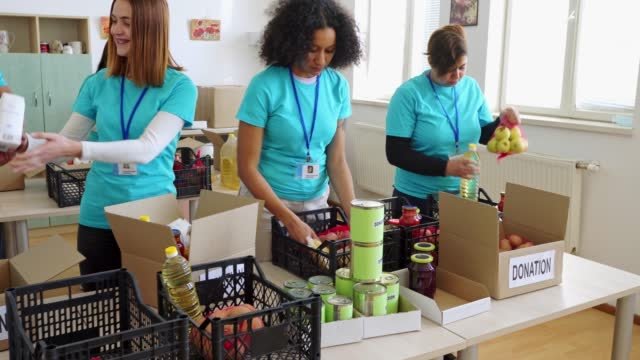On this page, we discuss the value of youth participating in volunteer work.
In a country like South Africa, where the divides of history continue to cast their long shadows, the role of the youth in nation-building cannot be overstated. As Nelson Mandela wisely said, “The youth of today are the leaders of tomorrow.” But how can the youth step into these roles of leadership and civic responsibility? Is formal education enough to prepare them for the myriad challenges that lie ahead? In grappling with these questions, the focus often shifts to the value of volunteer work, a form of informal yet invaluable education that offers both tangible and intangible rewards.
South Africa has a high rate of youth unemployment, with 63.3% of the youth aged between 15-24 being unemployed according to the Quarter 1, 2021 statistics by Stats SA. Does volunteerism offer a way out, or at least a ladder for skill development and community engagement that can set young people on a new path? Volunteer work not only aids in personal and professional growth but also serves as a cornerstone for building a more cohesive and equitable society.
Key Highlights
- The importance of soft skills in the real world
- How volunteerism can be a stepping stone to employment opportunities
- Mental health benefits arising from community service
- Bridging the divides: social, economic, and racial
- Real-world South African examples of volunteerism making an impact
This article seeks to delve into the multi-dimensional benefits that youth can gain from participating in volunteer work, especially in the unique socio-economic landscape of South Africa. We will explore the educational benefits, career opportunities, and the often understated but vital boost to mental health that comes from volunteering.
With questions like: “How can volunteering create a better citizen?” and “Does it offer a solution to some of South Africa’s most pressing problems?” this article aims to shed light on why volunteer work should be highly encouraged among South Africa’s youth.
The Value of Youth Participation in Volunteer Work
The value of youth participation in volunteer work is multi-faceted, offering educational, social, and psychological benefits. In addition to providing practical experience and skill development that can aid in future employment, volunteering fosters a sense of community and social responsibility. It allows young people to engage actively in their communities, addressing pressing issues and creating positive change. Moreover, the act of volunteering can instill a sense of purpose and mental well-being, enriching the lives of the volunteers as much as those they help. In the context of a diverse and challenging landscape like South Africa, volunteer work can serve as a bridge across social, economic, and racial divides, making it a vital tool for nation-building.
Personal Growth Through Skill Development
Engaging in volunteer activities provides young people an avenue to develop essential life skills such as leadership, time management, and communication. These “soft skills” are not only beneficial in personal relationships but are also increasingly sought after by employers. For example, leading a team in a community clean-up project can offer firsthand experience in project management and team coordination. Similarly, teaching underprivileged kids can develop one’s patience and empathy.
Enhancing Career Opportunities
Participating in volunteer work can be a significant resume booster. It allows young people to gain practical experience in various fields, thereby giving them a competitive edge when entering the job market. Many employers value volunteer experience as it often indicates a person’s ability to take initiative, work in a team, and contribute to societal betterment. For instance, volunteering in a healthcare setting can provide invaluable experience for someone interested in a medical career.
Strengthening the Social Fabric
Beyond personal development, youth volunteerism plays a crucial role in community building. It fosters a sense of belonging and mutual respect among participants and recipients alike. In a country like South Africa, where the specter of social inequality still looms large, the act of volunteering can bridge cultural and economic divides. The Rainbow Nation Project, a youth-led initiative, is one example where young people work together to promote social cohesion through various community activities.
Mental Well-being and Happiness
Studies have shown that volunteering can have a positive impact on mental health. The act of helping others can trigger a release of endorphins, improving one’s emotional well-being. For young people, who often grapple with issues related to self-esteem and identity, volunteering can provide a profound sense of purpose. A study conducted by the University of South Africa found that young volunteers often report higher levels of happiness and fulfillment compared to their non-volunteering peers.
Encouraging Civic Participation and Leadership
The act of volunteering often brings young people into contact with societal issues that they might not otherwise engage with. This heightened awareness can lead to greater civic participation, whether it’s through voting, activism, or community leadership. Organizations like LeadSA have youth programs aimed at nurturing future leaders through volunteer work, offering a practical framework for advocacy and change.
Conclusion
“You make a living by what you get; you make a life by what you give,” Winston Churchill once remarked. Volunteer work is more than a simple act of charity; it’s a powerful catalyst for personal growth, societal well-being, and community cohesion. Yet, its importance is often undervalued when it comes to youth development. By recognizing and supporting the myriad benefits of volunteer work for young people, we not only invest in their future but also in the betterment of society as a whole. What are we doing to ensure that the next generation is not just well-educated but also well-rounded? How are we helping them turn their youthful energy into positive social impact? These are questions worth pondering.






